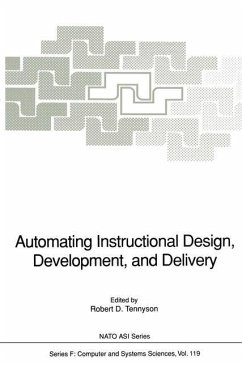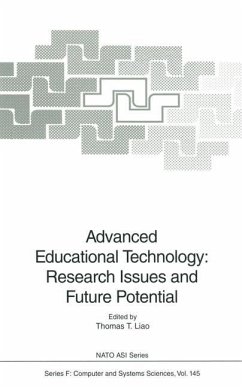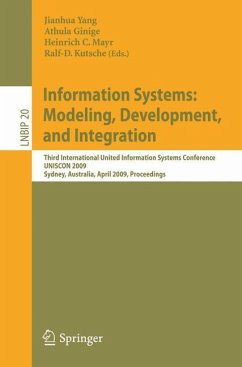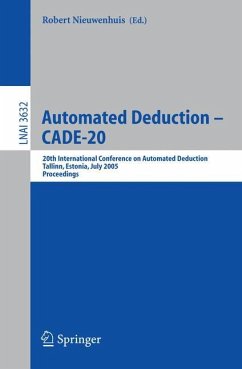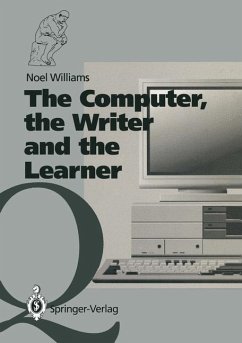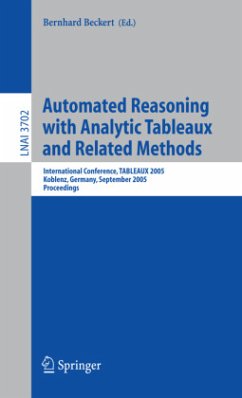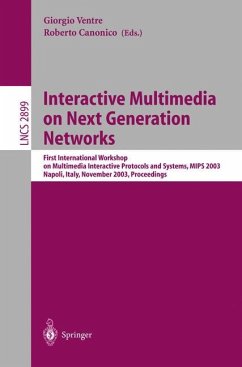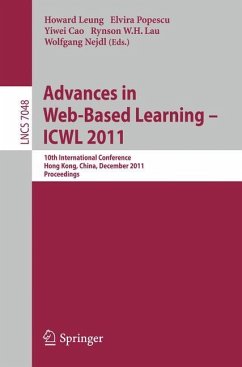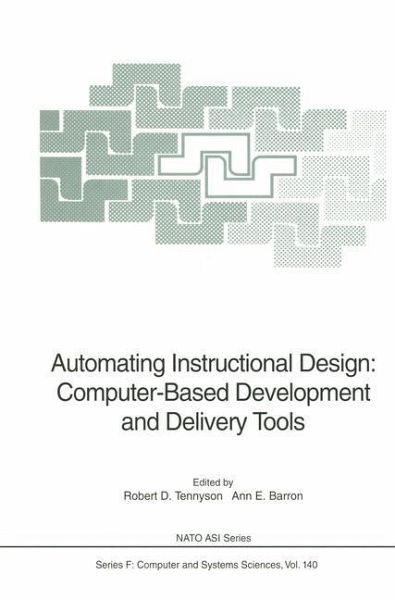
Automating Instructional Design: Computer-Based Development and Delivery Tools
Versandkostenfrei!
Versandfertig in 6-10 Tagen
151,99 €
inkl. MwSt.

PAYBACK Punkte
76 °P sammeln!
This institute was organized and presented by an international group of scholars interested in the advancement of instructional design automation through theory, research and applied evaluation. Members of the organizing committee included Dr. Klaus Breuer from disce (Germany), Dr. Jose J. Gonzalez from Agder College of Engineering (Norway), Dr. Begofia Gros from the University of Barcelona, Dr. J. Michael Spector from the Armstrong Laboratory (USA). Dr. Gonzalez, co-director of the institute, and the staff of Agder College were directly responsible for the preparation and operation of the ins...
This institute was organized and presented by an international group of scholars interested in the advancement of instructional design automation through theory, research and applied evaluation. Members of the organizing committee included Dr. Klaus Breuer from disce (Germany), Dr. Jose J. Gonzalez from Agder College of Engineering (Norway), Dr. Begofia Gros from the University of Barcelona, Dr. J. Michael Spector from the Armstrong Laboratory (USA). Dr. Gonzalez, co-director of the institute, and the staff of Agder College were directly responsible for the preparation and operation of the institute in Grimstad, Norway. The institute was held on the campus of Agder College of Engineering, July 12-23, 1993. The theme of the institute extended the initial work developed by the presenters at a NATO Advanced Research Workshop held in Sitges, Spain in 1992. During the two week institute, 21 presentations were made including papers and demonstrations. In addition to the formal presentations, working groups and on-site study groups provided opportunities for the students to participate directly in program activities. An important outcome for the working groups was the formal preparation of their efforts in chapters for this volume.





